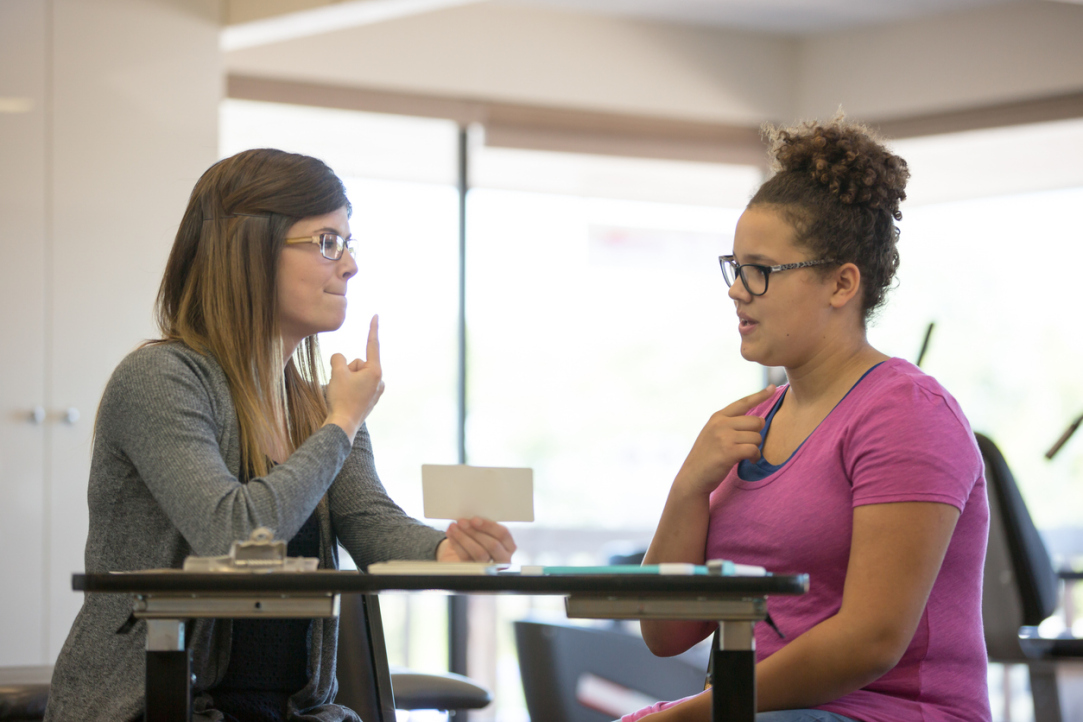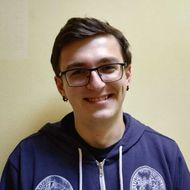HSE Neurolinguists Reveal What Makes Apps Effective for Aphasia Rehabilitation

Scientists at the HSE Centre for Language and Brain have identified key factors that increase the effectiveness of mobile and computer-based applications for aphasia rehabilitation. These key factors include automated feedback, a variety of tasks within the application, extended treatment duration, and ongoing interaction between the user and the clinician. The article has been published in NeuroRehabilitation.
Aphasia is a disorder characterised by complete or partial loss of the ability to speak and understand speech, caused by damage to areas of the brain responsible for language functions. The primary causes of aphasia include stroke, traumatic brain injury, inflammatory brain diseases, brain tumours, and dementia.
Aphasia significantly reduces a person's quality of life, prompting scientists to search for effective ways to restore the language functions impaired by the condition. With the widespread use of smartphones and tablets, a promising and rapidly evolving area of rehabilitation has emerged: serious games (SG) integrated into applications.
These are a special type of digital game designed not only for entertainment, but also to serve specific educational, training, or research purposes. In education, they support professional training, student learning, and foreign language acquisition. In healthcare, such games are used for patient rehabilitation.
Using a specially designed application, a person with aphasia can complete language training tasks and gradually recover their lost abilities. The effectiveness of such applications has already been demonstrated, but it remained unclear which specific tasks and features should be included, and how long users should engage with them to achieve optimal results.
Scientists from the HSE Centre for Language and Brain searched the PubMed and ScienceDirect databases and selected 18 studies which tested mobile and computer applications for aphasia rehabilitation.
The researchers focused specifically on cases where using an application produced remarkable results. For example, a patient who practiced naming 100 words improved to naming 150 words or was able to use the learned words not only in speech but also in writing. Sometimes, using serious games led to the development of related skills; for example, while training language functions, a person’s attention also improved.
In 14 of the 18 papers analysed (78%), patient use of the application resulted in positive effects. While most studies confirmed the effectiveness of the applications based on primary outcomes—ie improvement in the specific skills being trained—eight articles (44%) reported results that exceeded expectations, often showing that patients could apply the trained words in other contexts, such as writing. Additionally, two studies reported improvements in other higher cognitive functions.
The analysis revealed that the effectiveness of the applications was influenced by factors such as automated feedback, a diverse range of training tasks, extended treatment duration, and interaction between the patient and clinician. The latter is particularly important, as clinicians provide additional motivation and assess interim progress.
'At our centre, we are developing a game for aphasia rehabilitation. Reviewing existing studies will help us optimise its testing and incorporate the essential features needed for effective use. Many existing applications include few gamification elements and function more like digital workbooks with exercises. We aim to address this limitation to increase user engagement,' explains Georgii Gorshkov, Junior Research Fellow at the HSE Centre for Language and Brain.
The study was conducted with support from the Government of Moscow (Grant No. 1403-18/23).
See also:
HSE Scientists Uncover How Authoritativeness Shapes Trust
Researchers at the HSE Institute for Cognitive Neuroscience have studied how the brain responds to audio deepfakes—realistic fake speech recordings created using AI. The study shows that people tend to trust the current opinion of an authoritative speaker even when new statements contradict the speaker’s previous position. This effect also occurs when the statement conflicts with the listener’s internal attitudes. The research has been published in the journal NeuroImage.
Language Mapping in the Operating Room: HSE Neurolinguists Assist Surgeons in Complex Brain Surgery
Researchers from the HSE Center for Language and Brain took part in brain surgery on a patient who had been seriously wounded in the SMO. A shell fragment approximately five centimetres long entered through the eye socket, penetrated the cranial cavity, and became lodged in the brain, piercing the temporal lobe responsible for language. Surgeons at the Burdenko Main Military Clinical Hospital removed the foreign object while the patient remained conscious. During the operation, neurolinguists conducted language tests to ensure that language function was preserved.
AI Overestimates How Smart People Are, According to HSE Economists
Scientists at HSE University have found that current AI models, including ChatGPT and Claude, tend to overestimate the rationality of their human opponents—whether first-year undergraduate students or experienced scientists—in strategic thinking games, such as the Keynesian beauty contest. While these models attempt to predict human behaviour, they often end up playing 'too smart' and losing because they assume a higher level of logic in people than is actually present. The study has been published in the Journal of Economic Behavior & Organization.
Scientists Discover One of the Longest-Lasting Cases of COVID-19
An international team, including researchers from HSE University, examined an unusual SARS-CoV-2 sample obtained from an HIV-positive patient. Genetic analysis revealed multiple mutations and showed that the virus had been evolving inside the patient’s body for two years. This finding supports the theory that the virus can persist in individuals for years, gradually accumulate mutations, and eventually spill back into the population. The study's findings have been published in Frontiers in Cellular and Infection Microbiology.
HSE Scientists Use MEG for Precise Language Mapping in the Brain
Scientists at the HSE Centre for Language and Brain have demonstrated a more accurate way to identify the boundaries of language regions in the brain. They used magnetoencephalography (MEG) together with a sentence-completion task, which activates language areas and reveals their functioning in real time. This approach can help clinicians plan surgeries more effectively and improve diagnostic accuracy in cases where fMRI is not the optimal method. The study has been published in the European Journal of Neuroscience.
For the First Time, Linguists Describe the History of Russian Sign Language Interpreter Training
A team of researchers from Russia and the United Kingdom has, for the first time, provided a detailed account of the emergence and evolution of the Russian Sign Language (RSL) interpreter training system. This large-scale study spans from the 19th century to the present day, revealing both the achievements and challenges faced by the professional community. Results have been published in The Routledge Handbook of Sign Language Translation and Interpreting.
HSE Scientists Develop DeepGQ: AI-based 'Google Maps' for G-Quadruplexes
Researchers at the HSE AI Research Centre have developed an AI model that opens up new possibilities for the diagnosis and treatment of serious diseases, including brain cancer and neurodegenerative disorders. Using artificial intelligence, the team studied G-quadruplexes—structures that play a crucial role in cellular function and in the development of organs and tissues. The findings have been published in Scientific Reports.
New Catalyst Maintains Effectiveness for 12 Hours
An international team including researchers from HSE MIEM has developed a catalyst that enables fast and low-cost hydrogen production from water. To achieve this, the scientists synthesised nanoparticles of a complex oxide containing six metals and anchored them onto various substrates. The catalyst supported on reduced graphene layers proved to be nearly three times more efficient than the same oxide without a substrate. This development could significantly reduce the cost of hydrogen production and accelerate the transition to green energy. The study has been published in ACS Applied Energy Materials. The work was carried out under a grant from the Russian Science Foundation.
‘Algebraic Geometry Is the Geometry of Ideal Forms’
Founded 15 years ago at HSE University, the Laboratory of Algebraic Geometry and Its Applications studies fundamental mathematics and helps to shape a unified language of mathematical science. The laboratory has become a well-known and respected research centre; recognition of its achievements includes presentations by its staff at international mathematical congresses and publications in leading global mathematical journals. The HSE News Service spoke with the head of the laboratory, Professor of the Russian Academy of Sciences Dmitry Kaledin, about its work.
HSE Researchers Offer Guidance to Prevent Undergraduate Burnout
Researchers at the HSE Institute of Education have identified how much time students should ideally devote to their studies, extracurricular activities, and personal life to maintain strong academic performance without compromising their mental health. An analysis of responses from 2,753 students, combined with their actual academic results, revealed several risk factors—such as excessive homework—as well as positive factors, including sufficient sleep, regular exercise, and moderate participation in projects. Based on these findings, the researchers developed practical recommendations for both students and universities. The paper has been published in the European Journal of Education.



